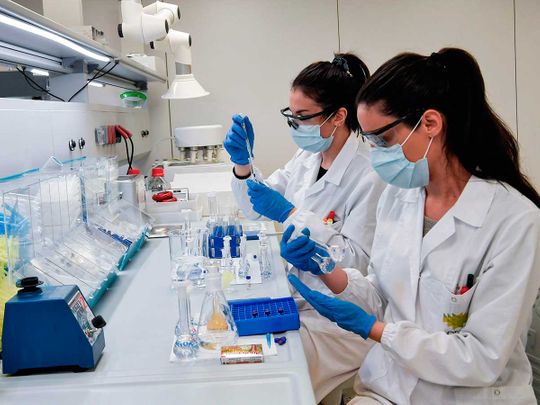
Islamabad: Pakistan’s pharmaceutical industry has issued a warning that it will be unable to produce and supply medicines beyond the next seven days if the government does not address the rising cost of production.
Around 40 pharmaceutical companies in Pakistan said that they will be unable to continue production due to a lack of raw materials and delay in court cases seeking price increases, Pakistan Pharmaceutical Manufacturers Association (PPMA) chairman, Syed Farooq Bukhari, confirmed Gulf News. The companies informed the Drug Regulatory Authority of Pakistan (DRAP) and the health ministry of the “critical situation” that may force them to halt production, Bukhari said.
Challenges
In several letters addressed to the health minister, the ministry, and DRAP, the pharmaceutical companies have warned of the “inevitable collapse of the local industry”. The increase in Active Pharmaceutical Ingredients prices, the devaluation of the Pakistani Rupee, and the lack of action from the Federal Government and DRAP have resulted in a shortage of medicines for the public as the industry is unable to guarantee the continued availability.
“Compelled and constrained by the circumstances beyond the control of the pharmaceutical industry, it has become completely unsustainable to manufacture medicines and ensure their availability beyond the next 7 days,” the firms said in one of the letters. The pharma association PPMA said on February 7 that they still await confirmation for a meeting with the government despite the dire situation that threatens public health. The health ministry and DRAP officials did not return requests for comments.
‘Existential threat’ for pharma industries
The pharma industry “is facing an existential threat and is headed towards a shutdown if the government does not take urgent action” cautioned Osman Khalid Waheed, CEO of Ferozsons Laboratories Limited, in a recent interview with Gulf News.
He suggested moving away from price fixation to deregulation to improve competitiveness in the industry. He added that price fixing in Pakistan is hurting both the industry and the patients, resulting in repeated shortages and the rise of smuggled and counterfeit drugs that fill the vacuum created in the absence of life-saving medicines.
The local pharma industry, which heavily relies on the import of raw materials, is facing an unprecedented crisis due to the surge in prices of pharmaceutical raw materials in the international market caused by the COVID-19 pandemic. Simultaneously, “the cost of fuel, electricity, freight charges and packing materials have also seen a drastic increase.”
The devaluation of the Pakistani Rupee by approximately 32 per cent against the US dollar since July 2022 and a 27.6 per cent increase in the Consumer Price Index in January 2023 have made the situation even worse, according to pharma representatives. They have repeatedly called on the federal government and DRAP to take action by allowing inflationary adjustments in the maximum retail prices of medicines.
Urgent public health threat
Pakistan’s health sector is currently facing shortages of crucial drugs for treating diseases such as cancer, diabetes, tuberculosis, and heart disease due to financial losses and import restrictions amid the economic crisis in the country. The shortage of foreign currency has disrupted both domestic production and exports. Industry leaders have urged for changes to laws and policies to sustain the sector.
Medical facilities in the country are facing a severe lack of medical devices and diagnostic products due to import restrictions, putting millions of people at risk. The government has asked the central bank to prioritize medical imports, but healthcare associations are calling for more action, claiming the shortage is a matter of urgent public importance.












